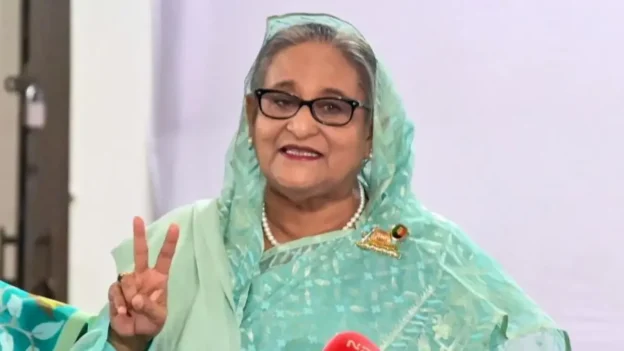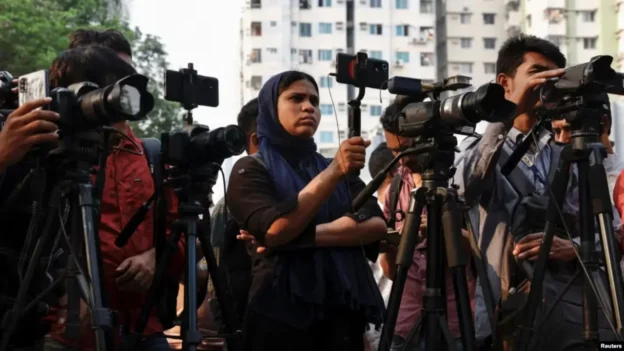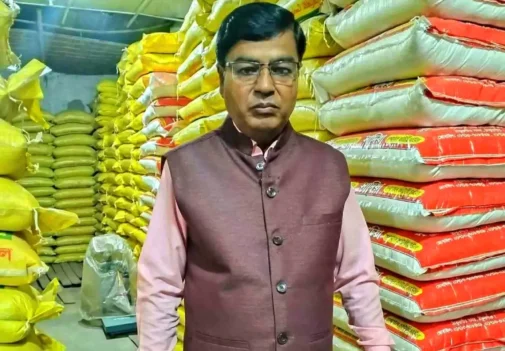As a tiny south Asian nation, sandwiched between India and Tibet (China), returned to normalcy after a brief political unrest, Nepal now looks for national polls within six months, as the Parliament was dissolved by President Ramchandra Poudel. The Himalayan nation witnessed a massive uprising on 8 and 9 September 2025 against the government in Kathmandu, where hundreds of thousands of young people hit the streets with various demands including an accountability to the regime. Finally after a series of talks among the agitating youths and the government armed forces, which swiftly brought the situation under control, an interim Prime Minister was appointed on l2 September.
Nepal’s first woman chief justice of the Supreme Court, Sushila Karki was sworn in as the interim premier in the presence of selected dignitaries including vice-president Rambaran Yadav, diplomats from India, China, USA, etc at the Presidential Palace. An alumna of Banaras Hindu University, Ms Sushila, 73, got the primary responsibility to conduct the national election by 5 March 2026. A law graduate from Tribhuvan University, who began her legal career in 1979, she also became the first female premier to lead the interim government of Nepal. Soon after her oath taking ceremony, President Poudel announced that the 30 million population nation will conduct elections for the 275-seat House of Representatives by 5 March (Falgun 21, 2082 BS) next.
Earlier, President Paudel and Nepali Army chief General Ashok Raj Sigdel appealed to the citizens to ignore all kinds of misleading and false information amid the turmoil. Announcing the acceptance of Prime Minister KP Sharma Oli’s resignation, the octogenarian head of the state expected everyone’s support to amicably resolve the crisis. Many ministers in the Oli-government also resigned and left the country. The ousted premier is understood to be inside Nepal. Mentionable is that Nepal has been ruled by the Oli-led Communist Party of Nepal (Unified Marxist-Leninist), Pushpa Kamal Dahal (Prachanda)-led CPN (Maoist Centre) and Sher Bahadur Deuba-led Nepali Congress in rotation, but with instability, since the 239 years old monarchy was abolished in 2008 following a decade long civil war.
The unrest resulted in the death of over 70 people, including 55 protesting youths, and injuries to over 1500 individuals. The angry demonstrators even ransacked Parliament buildings, Supreme Court premises, ministers’ office & residences along with a number of political party offices. At least two mainstream media houses, namely Kantipur Media Group and Annapurna Media Network, faced vandalism and six reporters, including two from India, were manhandled during the turmoil. Taking advantage of the situation, anti-social elements also helped a large number of jail-inmates to escape. Some of them have been re-arrested and many (over 12,000) remain traceless.
Indian Prime Minister Narendra Modi, who expressed serious concern over the turmoil in northern neighbor and also condoled the demise of many young people, wished best wishes for Ms Sushila Karki saying, “India remains firmly committed to the peace, progress and prosperity of the people of Nepal.” His Holiness the 14th Dalai Lama also congratulated her for being appointed as Nepal’s interim premier. The highest Tibetan spiritual leader, in a message issued from Dharamshala in north India, recalled the long-standing ties between the Nepalese and Tibetan peoples and expressed gratitude for Nepal’s support in rehabilitating Tibetan refugees since 1959. China’s foreign ministry also stated that Beijing congratulated Ms Sushila on her elevation and reaffirmed its commitment to strengthening bilateral ties. Bangladesh interim government chief Dr Muhammad Yunus also expressed confidence that her tenure will guide the country toward peace, stability, and development.
It’s shocking that the Nepali citizens, most of whom had joined in the anti-Monarchy armed movement (1996 to 2006) under the banner of Communist Party of Nepal (Maoist), now get frustrated with the functioning of multi-party democracy because of perennial non-governance and massive corruptions among their political leaders. The new generation of Nepal, hunted by outspread poverty and unemployment, used to criticize the authority through various social media platforms, but the government had recently banned most of the outlets, annoying the entire young population. When they initially demanded the revocation of those restrictions, the police tried to silence them with a brutal crackdown, which flared up the situation. So one can now summarize, it’s easier to run an anti-establishment outrage, but to guide a post-revolution nation always becomes very challenging.
Nonetheless, Nepal must succeed in its mission to reestablish as a nation for peace, compassion and wisdom.



